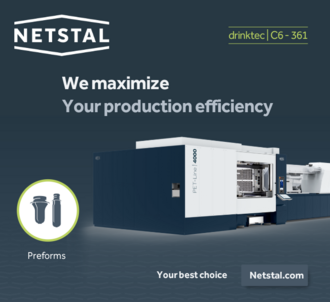The chief objective of the KHS 2025 strategy program is to get even closer to the customer by expanding the company’s global footprint. The most important requirement here is that KHS is permanently perceived as a reliable supplier and partner across the globe. With production sites, service hubs and sales companies installed around the globe, in this respect the Dortmund systems supplier is already very well positioned. The next key aim is to now strengthen this local presence worldwide by increasing production capacities and gradually further qualifying the KHS network – for example by setting up training centers that help to intensify customer relations in the after-sales business. Parallel to this, the company’s global organization is also being adjusted, with structures being consistently standardized, responsibility for results decentralized and more personnel hired.
Recruit and retain new employees
The third point in particular is something of a challenge: as an essential factor of its economic success, KHS’ group parent company Salzgitter has placed people at the core of its strategy, inviting employees to contribute and implement their ideas. This is offset by the fact that lots of older personnel are now retiring as a result of the change in our demography. In this situation it’s important to secure existing expertise and – first and foremost – to attract new people to the company. In order to master this problem, KHS has established a process to ensure the transfer of knowledge. It also attaches the greatest importance to providing fair, attractive working conditions and an open environment defined by mutual respect and appreciation. In this context KHS is optimistic that it’s well prepared to meet the coming demographic challenges and is able to recruit and retain new employees for KHS in the future.
For this purpose, capacities are being extended well in advance in Service, Line Engineering, Project Management, Production, Commissioning and Sales especially. The need is particularly great in North, Central and South America, where KHS operates no fewer than three production sites. At the same time, the number of personnel is being increased, infrastructure invested in and standard digital solutions introduced in all other regions, too, in an attempt to exploit global growth potential. Besides ensuring proximity to the customer, the issue of sustainability also plays a key role for KHS: with its local-to-local approach KHS’ production and after-sales units worldwide are to be developed so that they are increasingly able to carry out their work if possible without help from Germany. This does away with the need for costly shipping operations. Together with its use of digital solutions, this makes for considerable savings in both CO2 and time which KHS intends to capitalize on as best as possible in the interests of its customers.
New factory in China
The start of KHS’ investment in its various locations was marked by the new factory opened at the end of 2021 in Kunshan in China. In moving to the new address in the Greater Shanghai region, the production area grew to four times its previous size: now measuring a total of 20,000 square meters, this is where KHS’ latest generation stretch blow molders, block systems and high-speed lines for water and carbonated soft drinks are manufactured. Despite the often difficult conditions imposed by the corona pandemic and China’s zero Covid policy, the factory has got off to a successful start: the time required for installation and commissioning has now been cut by about a third compared to past operations of this kind. KHS in China also provides a comprehensive local service as spare parts can now be supplied from the warehouse in Kunshan at short notice.
Increased capacity in Waukesha
Another example can be found in North America, where in November 2022 KHS’ US facility was considerably enlarged. At its Waukesha site just a few kilometers from the beer town of Milwaukee, almost 2,200 square meters of space were added to the assembly hall. “We wanted to expand the scope of our local production facilities,” emphasizes Glenn Huber, CEO and president of KHS USA. “This refers to the manufacture of PET and primarily can fillers. Our Smart Can by KHS/Ferrum block system we’re producing together with the Swiss can seamer manufacturer deserves a particular mention here, for we see huge growth potential in this area.” The USA is also the main sales market for the compact Innofill Can C can filler that’s extremely popular with the country’s multitude of craft brewers in particular. The machine, developed locally for smaller and medium-sized breweries especially and built at the Wisconsin factory, is a real success.
One section of the new hall accommodates a training center where in-house and external courses of further training are held. “As our seminar rooms are directly connected to the production shop, we can show participants our machines whenever we need to and in doing so help them study the course content in practice,” smiles John Turner, COO for KHS in Waukesha. All told, the range of courses on offer is being well received by clients. “This is where we train customer operators to be experts so that they can take on more responsibility and equipment ownership back at their own plant,” says Turner.Besides all of the practical advantages, CEO Huber believes there to be a further positive aspect to the 5.6-million-euro investment. “We’ve been here since 1972. But now that we’ve attached a huge KHS sign to the side of our extension that fronts busy Highway 94, the people here now consciously take note of us.” This is good, he continues; after all, the investment cements KHS’ commitment as an employer and regional economic factor. Alongside the impact this has on the outside world, it also sends a strong signal to the 355 people who work here.










